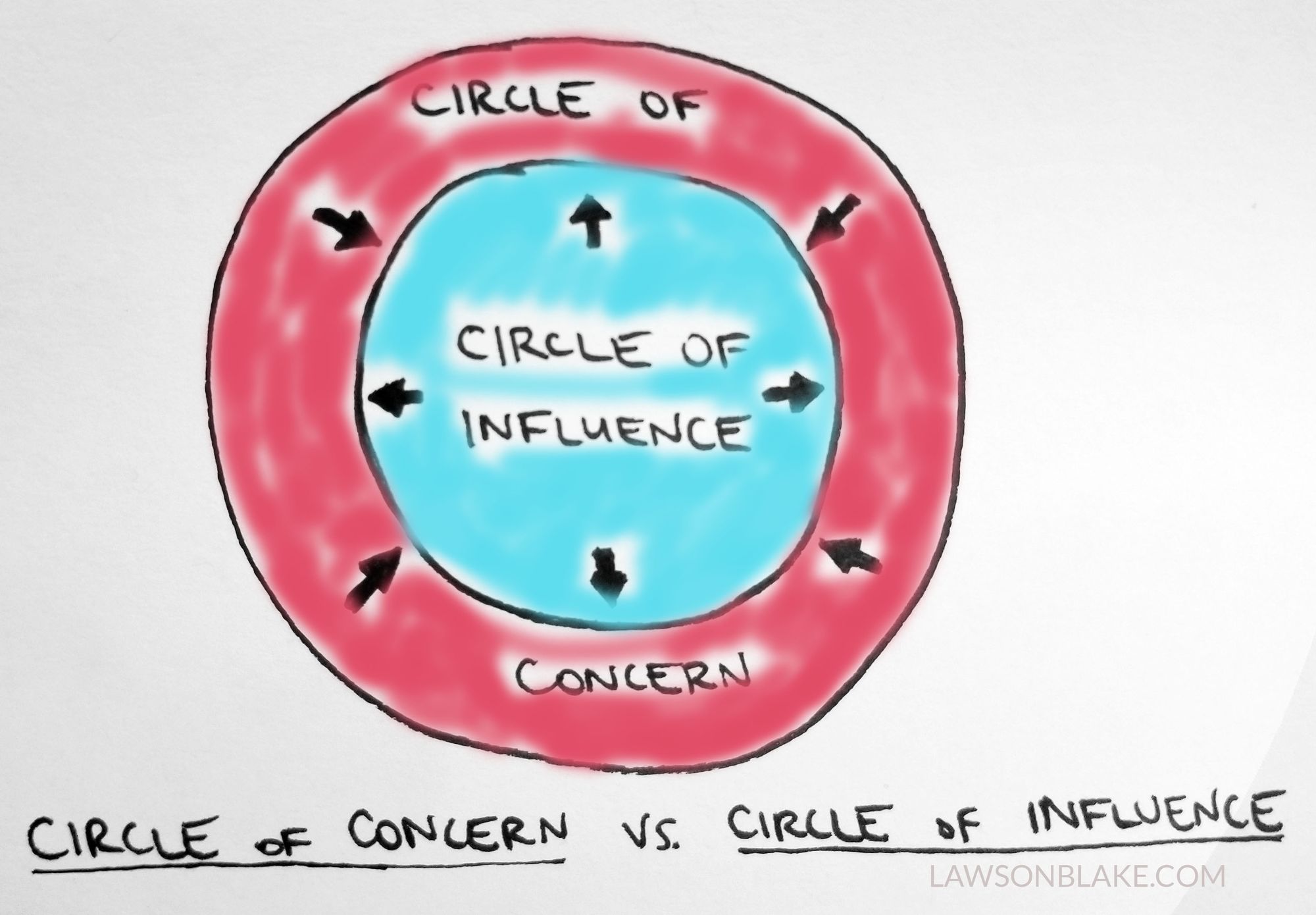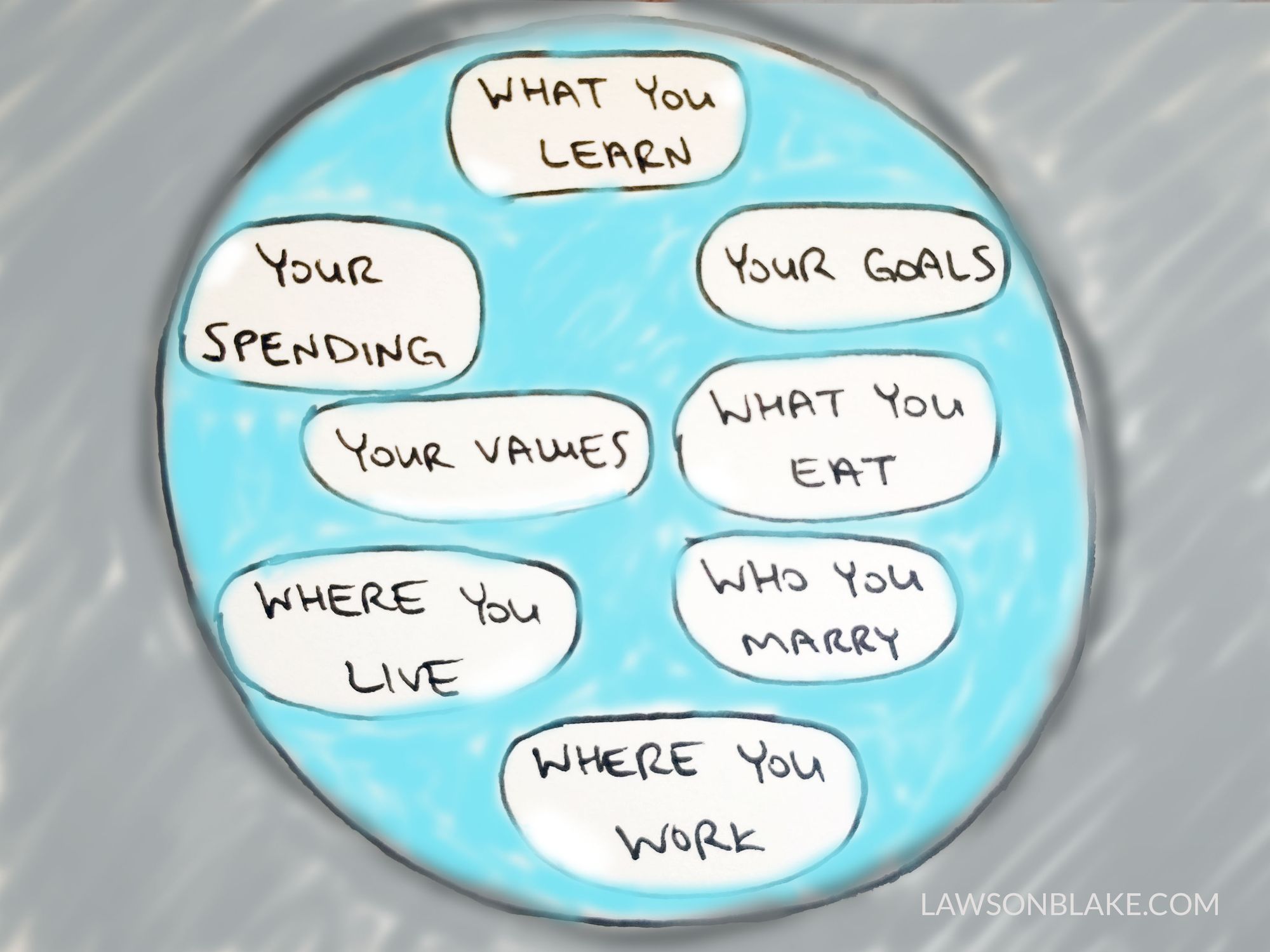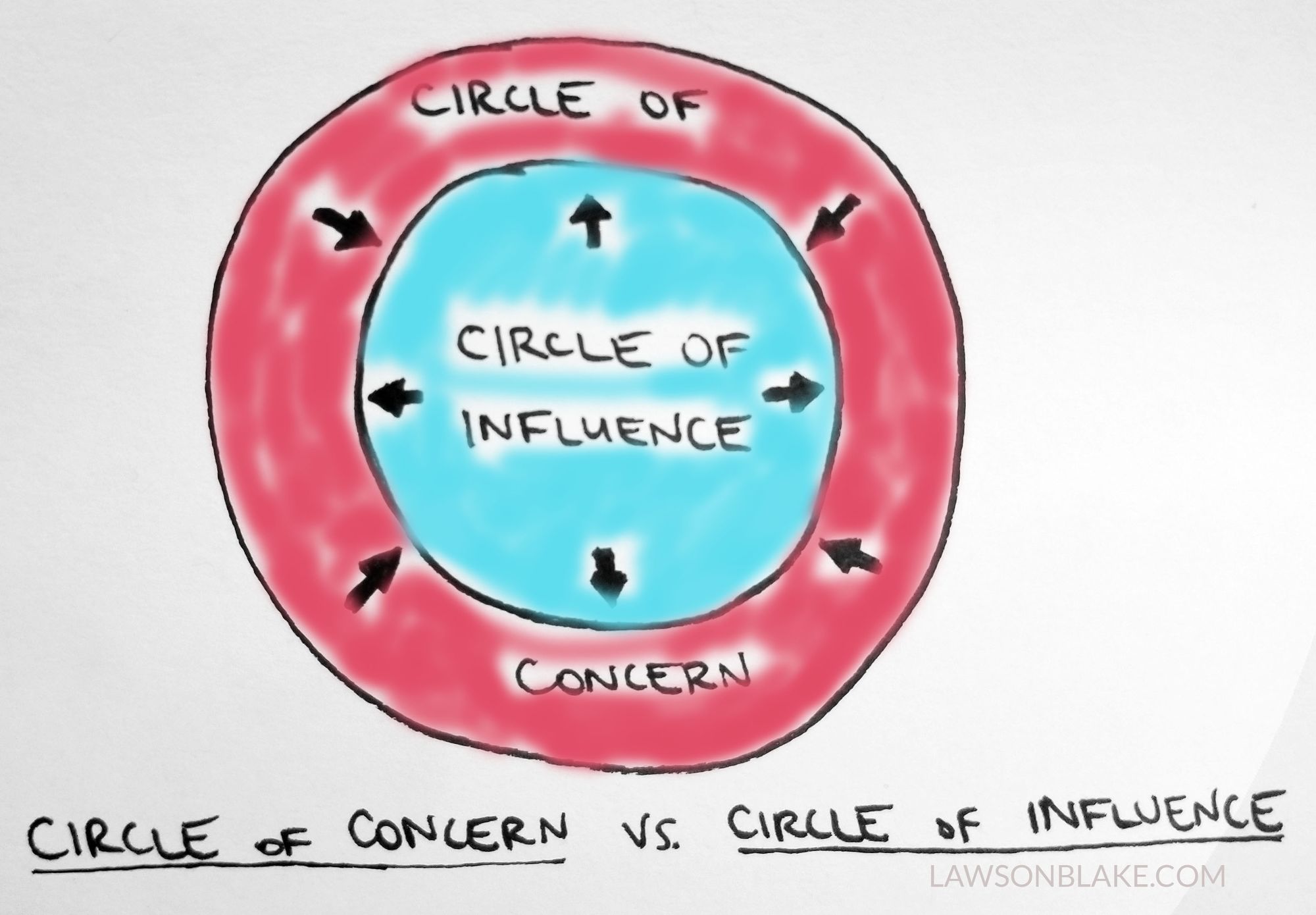How many hours per day do you spend consuming information that you have no intention of putting to use or really even care about? How many of those hours are devoted to your Facebook and Instagram feed, the 24-hour news cycle, and random web browsing?
While it truly is a modern marvel that nearly all of humanity's information can be accessed with just an internet connection, it has also never been easier to fill your life with pointless, if not harmful, levels of information. What was once a luxury has become so cheap that it's easy to over-consume.
Over time, you fall into the trap of thinking that it's essential to "stay up-to-date" for fear of missing out. You tell yourself that you must watch the news so you can be a well-informed citizen. Or at the very least, you keep up with the latest reality TV show or Netflix special so that you can hold a conversation with your coworkers.
But before you know it, the slippery slope of a low-quality information diet takes its hold on you and begins to manipulate your thoughts and actions. You start spending less time focused on what you can influence and instead direct your energy towards things outside of your control.
Circle of Concern vs. Circle of Influence
In the best-selling business book, The 7 Habits of Highly Effective People, author Stephen Covey explains the difference between your Circle of Concern and your Circle of Influence.
In a nutshell, everything inside your Circle of Influence is what you can control – your goals, values, what you eat, who you marry, etc. Anything outside this circle is not much more than a distraction designed to steal your energy from growing your Circle of Influence. This large outer circle filled with these distractions is known as your Circle of Concern and where you waste most of your time and energy.

Your Circle of Concern includes a range of things – natural disasters, the state of the economy, what your coworkers say about you, and the latest celebrity gossip, to name a few. These things may seem important, but spending your time and energy obsessing over them won't change their outcome.
"You are never responsible for the actions of others; you are only responsible for you. When you truly understand this, and refuse to take things personally, you can hardly be hurt by the careless comments or actions of others."
―Don Miguel Ruiz & Janet Mills
The only thing you influence by worrying about what is in your Circle of Concern is yourself. If you continue to live your life in this manner, you're training yourself to become a reactive person. Life throws a curveball at you, and you react.
The weather is too hot or too cold, so you complain. Traffic is terrible on your commute to work, so you react by honking and cursing at other drivers. A natural disaster hits close to home, and you blame the government for not being prepared. Everything negative that happens to you is somehow always somebody else's fault.
It's human nature to want to go through life reacting to every negative event with anger and a sense of unfairness. You want to give yourself an out, an escape from reality because it's what's comfortable. But that type of thinking is also limiting and keeping you from living a more fulfilled life.
You don't have to keep living as a reactive person; you can choose to take a proactive stance by shrinking or even eliminating your Circle of Concern. But first, you must free your mind from worrying about what you can't control.
How to Stop Worrying About What You Can't Control
“You have power over your mind - not outside events. Realize this, and you will find strength.”
―Marcus Aurelius
Shrinking your Circle of Concern requires having an honest conversation with yourself about how you're currently spending your time. You can't expect to make any meaningful changes without first being aware of the problem. This means taking account of how many hours, on average, you spend each day on social media, watching the news, or aimlessly browsing the internet.
You want to know what inputs are robbing you of your attention and hijacking your emotions. Once you realize how you're spending your time, then you can take the necessary steps to reduce the number of negative inputs in your life. Here are some useful ways to eliminate some of the noise:
- Just stop watching the news. It's doing you more harm than good.
- Use the Freedom app to block distracting apps and websites on your phone. It gives you control over how long you want to block something if you don't want to quit cold turkey.
- Start a daily journal to monitor your worries and reactions. Writing these down will reveal the areas of your life in need of improvement.
- Spend a few hours each week freeing your mind by practicing meditation, lifting weights, going for a run, or taking long walks outside.
Letting go of the things you can't control will be an ongoing battle. It will require removing distractions you've grown comfortable using to combat stress and boredom. But if you're serious about wanting to lead a healthier and happier life, then you must relentlessly prune the things that don't matter so you can focus on what you can control.
Focus on What You Can Control
By deliberately limiting the irrelevant things in your life, you will automatically become much better at focusing your energy on the things you can influence. It will free up your time so you can focus on improving your health, wealth, relationships, and creative output.
"What, then, are the things over which we have complete control? To begin with, I think we have complete control over the goals we set for ourselves."
―William B. Irvine
As you spend more time focused on what you can control, you will notice your Circle of Influence starting to grow. As your influence grows larger, other people will begin to see you as an effective person and will voluntarily increase your power. You create a powerful feedback loop where every stage of improvement begets more opportunities for you to grow your influence.

Focus on improving your health, and you will have more energy to improve other areas of your life. Focus on improving your relationships, and you will soon find yourself surrounded by other motivated individuals willing to help you grow. Focus on building your knowledge and skills, and you will notice more opportunities to advance your career.
The irony is that by carefully avoiding the irrelevant distractions in your life, you will eventually gain influence over many of them. The state of the economy is not much of a concern for a valuable employee with a sought-after skill set and reliable network. The political landscape is no longer much of a concern for someone who can provide a comfortable life for their family.
What were once things you spent time worrying about is no longer a concern. Or perhaps, now under your full control.

